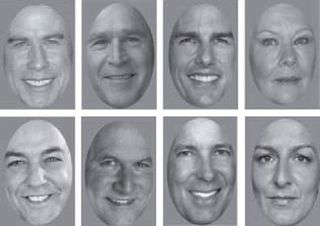Prosopagnosia is a disorder in which people struggle to recognize faces

Prosopagnosia: The Struggle to Recognize Faces

Have you ever bumped into someone you know but failed to recognize them until they said hello? We all have those moments of embarrassment, but for people with prosopagnosia, or face blindness, this struggle is an everyday reality. Prosopagnosia is a cognitive disorder characterized by the inability to recognize faces, even of those closest to us.
Recognizing the Unrecognizable

Faces play a crucial role in our social interactions and relationships. We rely on them to identify friends, family members, and even strangers. However, for individuals with prosopagnosia, this seemingly simple task becomes an enormous challenge. They struggle with facial recognition not because of poor eyesight, but due to abnormalities in specific brain areas responsible for processing facial information.
The Diversity of Prosopagnosia
Prosopagnosia can manifest in different forms, varying in severity and causes. Some individuals are born with this condition, known as congenital prosopagnosia, while others acquire it later in life due to brain injury or neurological conditions.
In most cases, prosopagnosia is an isolated condition, where individuals have difficulty recognizing faces but demonstrate no other visual impairments. However, certain individuals may experience additional visual processing difficulties, making it harder to recognize objects or interpret expressions.
A Hidden Struggle
The true extent of prosopagnosia often remains hidden to the untrained eye. Individuals with this condition rely on elaborate compensatory strategies to recognize people. They focus on other identifying features like hairstyles, body shapes, or unique accessories to differentiate individuals. Yet, in situations where these identifying factors are absent, recognizing familiar faces becomes nearly impossible.
Understanding the Challenges Faced
Living with prosopagnosia presents numerous challenges in daily life. Social interactions become a source of anxiety, as individuals may inadvertently fail to identify close friends or acquaintances. Imagine the feeling of unintentionally ignoring or overlooking someone you should recognize. It can strain relationships and lead to social isolation.
Coping Strategies and Support
There is currently no known cure for prosopagnosia, but individuals can develop coping strategies to manage the condition. Some people find success through memory association techniques, such as focusing on unique facial features or distinctive voice patterns. Others rely on contextual cues, such as remembering where they first met someone or associating certain locations with specific individuals.
Support groups and online communities also play a significant role in helping individuals with prosopagnosia navigate their daily lives. Sharing experiences, tips, and providing moral support can make a world of difference for those dealing with this often misunderstood condition.
Raising Awareness
Although prosopagnosia affects a significant number of individuals worldwide, it remains relatively unknown to the general public. By shedding light on this condition, we can create a more understanding and inclusive society. That’s why it’s crucial to raise awareness and encourage empathy towards people living with prosopagnosia.
In conclusion, prosopagnosia is a disorder that affects the ability to recognize faces. Individuals with this condition face unique challenges in their daily lives, relying on compensatory strategies to navigate social interactions. By fostering understanding and support, we can ensure that those with prosopagnosia feel seen and recognized in a world where faces are so central to our interactions.
Tags
Share
Related Posts
Quick Links
Legal Stuff

